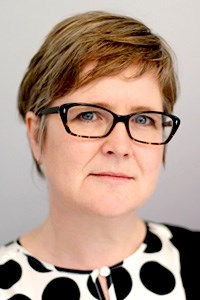As the representative bodies for general practice and trusts, we're concerned about the divisive debate on access to NHS services – in particular, at present, access to face to face GP consultations. It is stirring up a 'blame game' and risks setting patients against healthcare professionals – something we're already seeing with increasing reports of abuse against staff. In some cases it is pitting healthcare professionals against one another, at a time when we really need to stick together. It detracts from the real issue: an underfunded, overworked and understaffed – yet highly valued – service that is doing its best for patients under significant strain.
What isn't acknowledged are the daily achievements of general practice, where more than a million patient consultations are made every day. More than 14.6 million face to face GP surgery appointments were delivered in July – 57% of the total – with 45% of appointments taking place on the day they were requested. And, far from patients turning against their GP, as you would think is the case given recent headlines, the latest independent GP patient survey, conducted during the pandemic, shows increasing patient satisfaction with their family doctor.
The pandemic has shaken the whole of society. Those dealing with the crisis on the frontline of care have been particularly hard hit. Doctors, nurses, pharmacists, care workers and others across primary and secondary care have worked to their limits over the last 18 months. Now they face what is likely to be an incredibly difficult winter, with the potential for a surge in COVID-19 and a likely sharp increase in other respiratory illnesses and flu.
As they have throughout the pandemic, GPs and secondary care professionals will be working hand-in-glove to ensure patients get the care they need.
As they have throughout the pandemic, GPs and secondary care professionals will be working hand-in-glove to ensure patients get the care they need. But pressure on services is being felt right across the NHS: in emergency care, ambulance, mental health and community services, trusts are treating more people than before the pandemic. In general practice, teams are working under intense resource and workforce pressures on a daily basis. The current onslaught in some sections of the media – and the increasingly frequent reports of abuse GP staff are facing – is upsetting and demoralising. And, it is counter productive given the need to encourage people to join the profession, in the context of the government's pledge to train 6,000 additional GPs.
The extraordinary efforts of GPs and their teams, along with colleagues across the NHS, in vaccinating almost 90% of the UK's adult population – alongside continuing to make the vast majority of NHS patient contacts – risk being forgotten amidst the current furore.
Face to face consulting will always be an essential part of general practice, as it will be across the health service. But the whole service is modernising, and one of the most frustrating things about the current narrative around remote care is the misconception that it is substandard. There are limitations of course – remote consultations will not always be suitable – which is why face to face appointments have been available throughout the pandemic. But good care can also be delivered remotely. Indeed, some people prefer remote care: it is convenient, can give patients more control over how and when they access services, and it can help ensure someone receives the most appropriate care for their needs.
The truth is that in the wake of the greatest health crisis in living memory, access issues across the health and care system are real, and will be with us for some time.
This shift towards digitally-enabled care is not unique to general practice: it is also happening in secondary care, for example with increasing use of online tools to provide outpatient consultations or talking therapies. We understand that patients are frustrated when they find it difficult to access care and healthcare professionals share these frustrations. The truth is that in the wake of the greatest health crisis in living memory, access issues across the health and care system are real, and will be with us for some time. Some reasons for this are a legacy of the pandemic, such as the ongoing need for some infection control measures, which have reduced the capacity of many healthcare settings. But there are other, longer-term causes too – most importantly a legacy of poor workforce planning and successive governments failing to invest appropriately in general practice.
Government and national NHS leaders need to recognise the strain the NHS is under and help us to explain this to the public. Divisive and distorted claims about GP access simply serve to demoralise the very people who are going above and beyond every day to keep the NHS running safely for patients. The current anti-GP headlines we are seeing will not lead to more people being able to access care sooner and could actually prevent some of our more vulnerable patients from getting the care they need.
This blog was first published by the Independent.
About the authors


